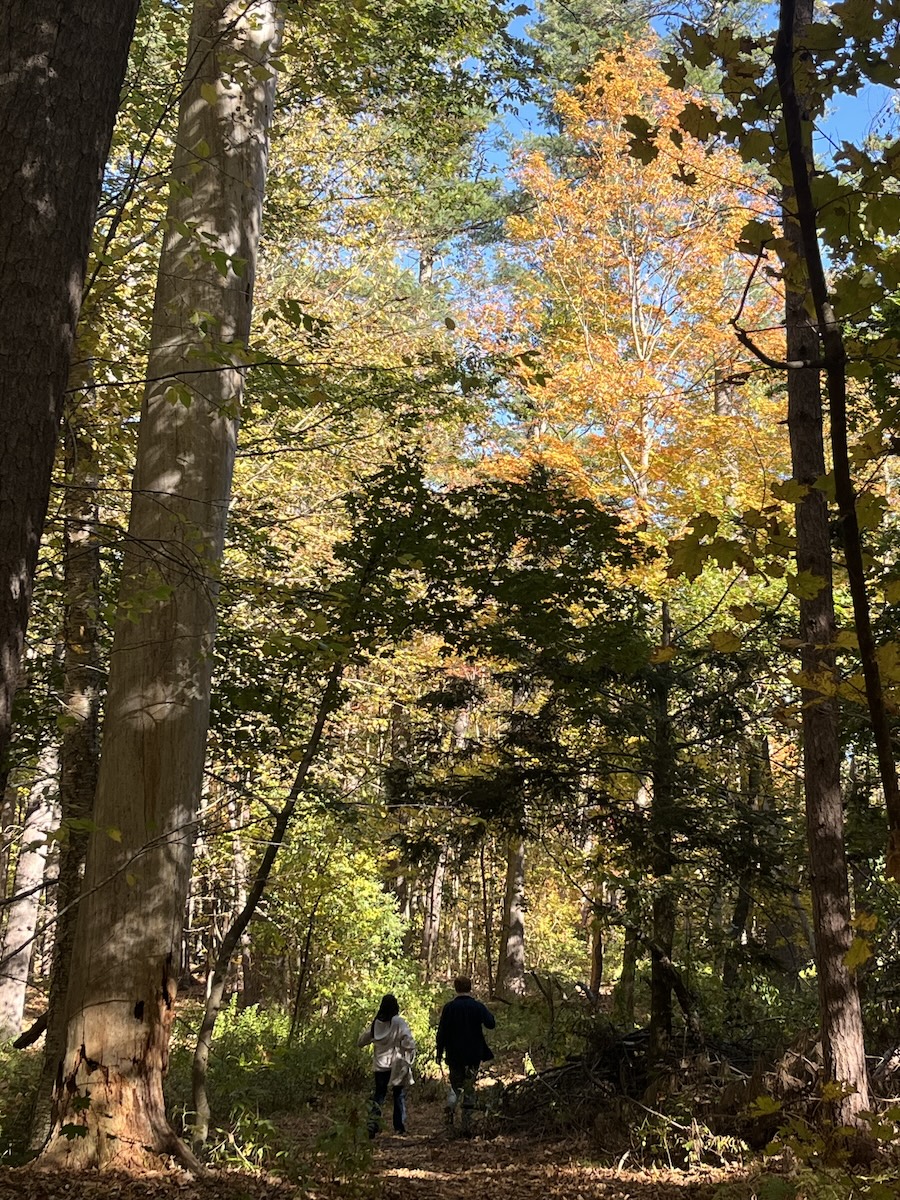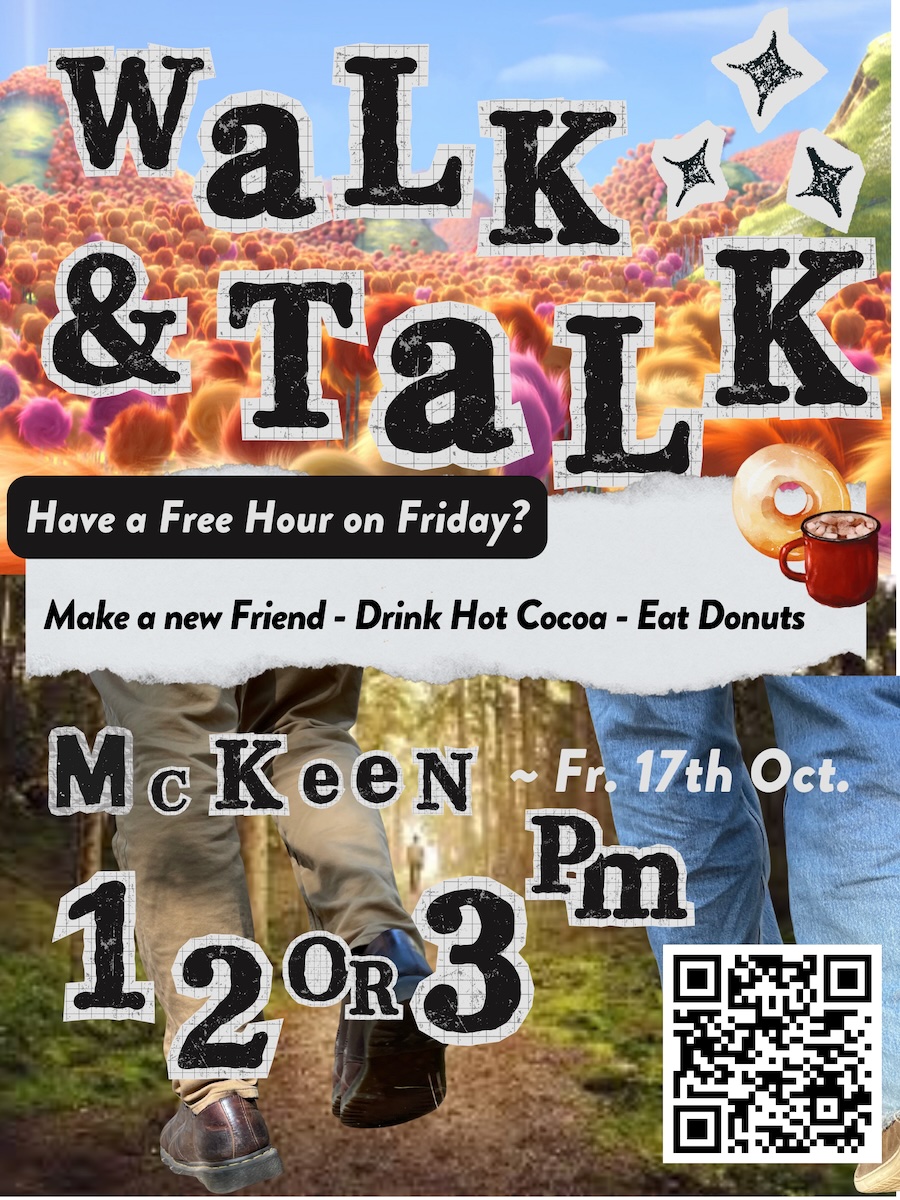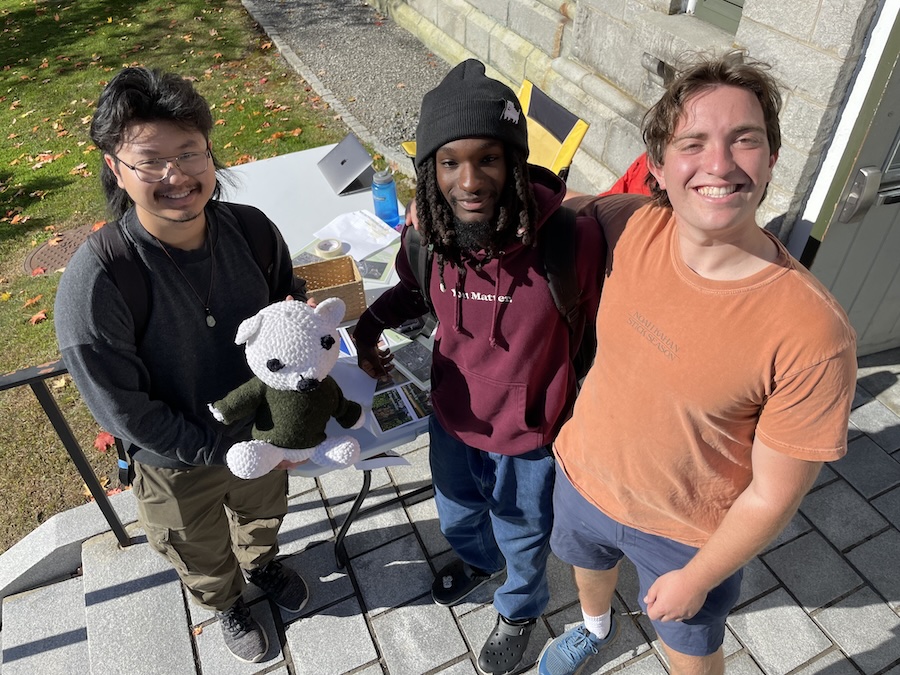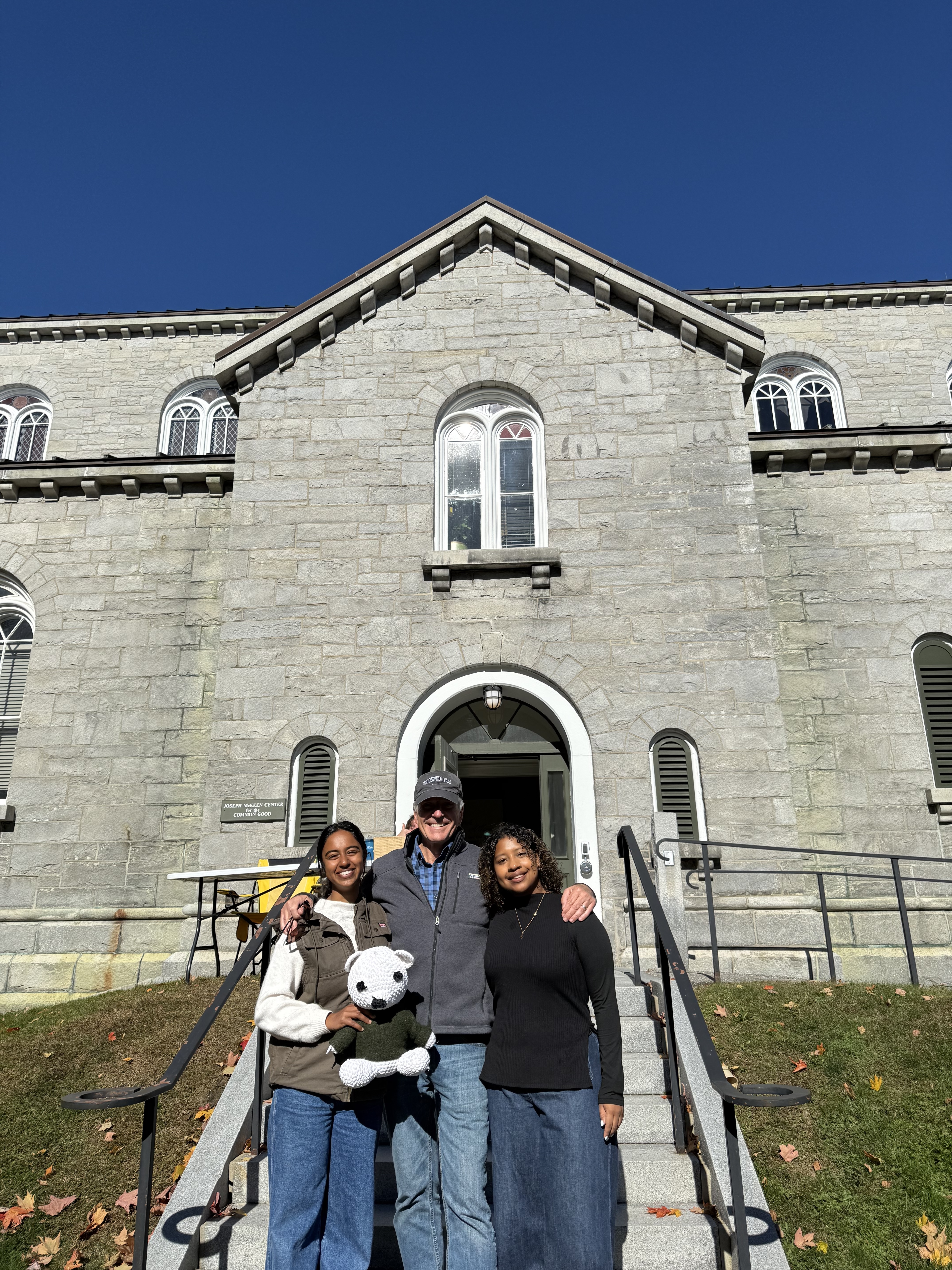From Walking and Talking to Understanding
By Lily Echeverria ’26
Knowing that walking and talking is a natural combination, they recently decided to take their discussion platform to the trails.
Moana Gregori ’26 and Sam Borne ’26 partnered with the Bowdoin Outing Club last week to host a new event called Walk & Talk. Participants were randomly partnered up, equipped with a map, and sent off to stroll the short trails in the Bowdoin Pines, a serene patch of old white pines adjacent to campus.
In addition to providing attendees with conversation prompts, the team also set up hot cocoa and donuts for their return.
Borne and Gregori spent time thinking about what prompts to prioritize to initiate conversation. They wanted a balance of political and philosophical topics, and included some that just asked walkers to chat about their daily lives and hobbies.
The prompt cards covered the subjects of economic inequality, immigration, guns and safety, climate change and responsibility, free speech and campus expression, and happiness.
Each category had four questions. They began on a personal note, broadened to touch on national or global politics, and ended more playfully. Happiness, for instance, included four questions:
- What’s one thing that makes you feel genuinely happy?
- Do you think happiness comes more from achievement or relationships?
- Should governments care about citizens’ happiness or just their freedom?
- Design the perfect Bowdoin day together.
A Variation on a Longstanding Dialogue Tradition
The McKeen Center has been running its What Matters series since 2015 to encourage people—often with differing beliefs and values—to explore issues together.
“The whole What Matters program is focused on inviting people to have dialogue across campus on different issues that matter to the campus community,” Gregori said. “Usually, we'll invite a professor who's knowledgeable about a certain topic, and we order dinner and talk around the table for two hours.”
Gregori said she enjoys this, but recently was thinking about how to broaden its reach to invite more people into these conversations.



“The main problem is that the people who come to these conversations already know how to have dialogue,” she said. “They’re really interested in having conversations and talking to people with different viewpoints, and that’s great, but also excludes a wide campus community that does not partake in conversations, or is kind of more in a bubble.”
Gregori brought her idea to Borne and Tom Ancona, associate director of the McKeen Center, after spending time at the European Forum Alpbach this summer, which is a two-week-long conference about the future of Europe.
“Most of the conference was basically going on hikes in the mountains and talking with people, and then we would stop in different locations and have a guest speaker give a talk,” she said. “The most valuable part of that was not necessarily the guest speakers, but just on the walks, meeting someone new and chatting about whatever prompt the guest gave you.”
She came back curious about whether the McKeen Center could do something similar at Bowdoin. Borne was excited about the idea.
“We need to practice the muscle of civil dialogue to ensure that it doesn’t atrophy so we can learn to live and work together,” Borne said. “This activity was a great way to get outside, for people to meet new students and members of the community they otherwise might not know.”
Ancona saw the event as a great success. Thirty-seven people participated, including many first-years and sophomores who were seeking an opportunity to connect with someone they hadn’t met before.
“We lucked into a wonderful fall-weather day and everyone who came back from the conversations was happy to have participated. We’ve already had a few people say they want to do it again,” he said.
More What Matters events are coming up, including a dinner with Reed Johnson, senior lecturer in Russian, East European, and Eurasian studies, on October 30, and another with David Gordon, the Roger Howell Jr. Professor of History, on November 6. The team also tentatively plans to host a walk at the end of the semester, as well as have more sessions next semester.